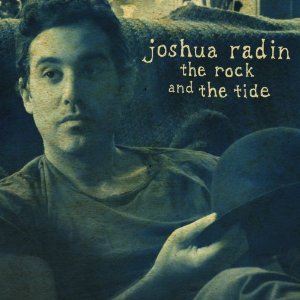
RIYL: swearing, playing the piano, swearing while playing the piano
 Listening to Lonely Avenue, the geek pop wet-dream collaboration between Ben Folds and “High Fidelity” author Nick Hornby, one cannot help but think that there are moments where Folds is trying to pull a fast one on the public. This is not to say that Hornby’s credit is an ornamental one, but it seems strange that this smart, clever author, whose lightest books have more emotional depth than Folds’ songs have explored in over a decade, would actually write this, ever:
Listening to Lonely Avenue, the geek pop wet-dream collaboration between Ben Folds and “High Fidelity” author Nick Hornby, one cannot help but think that there are moments where Folds is trying to pull a fast one on the public. This is not to say that Hornby’s credit is an ornamental one, but it seems strange that this smart, clever author, whose lightest books have more emotional depth than Folds’ songs have explored in over a decade, would actually write this, ever:
“I’m a fuckin’ redneck, I like to hang out with the boys
Play some hockey, do some fishing and kill some moose
I like to shoot the shit and do some chillin’, I guess
You fuck with me, and I’ll kick your ass”
Bull, shit. That’s a Folds chorus if ever there was one, and besides, it’s hard to believe that the English Hornby – or anyone else, for that matter – would care one iota about Levi Johnston to write a song about him. And if Folds did write the lyrics, that’s fine – actually, it’s not fine; the man is 44 with 11-year-old twins, and the whole potty mouth thing is beyond embarrassing at this point – but don’t include it here. Release it on your web site as a free download. Its inclusion here, and towards the front of the album, no less, nearly derails Lonely Avenue before it’s had a chance to spread its wings.
Indeed, the opening track only sets the stage for this to be like any other Folds album of late: filled with cranky, passive-aggressive hostility and naughty language. “A Working Day” comes off as a pre-emptive strike to people like, well, us, with a chorus of, “Some guy on the Net thinks I suck, and he should know / He’s got his own blog.” Folds may well be speaking from someone else’s point of view, but he has to know the dangers of singing a line like that and how thin-skinned it makes him look. (Plus, it has more foul language.) “Picture Window,” on the other hand, feels like a true Folds/Hornby collaboration, the sad tale of a woman giving birth on New Year’s Eve (at least that’s what we think it’s about). A beautiful string section shrouds Folds’ piano as he sings, “You know what hope is? Hope is a bastard / Hope is a liar, a cheat and a tease.” The album could use more songs like that and fewer songs like “Password,” which commits the unpardonable pop music sin of spelling out words (lots of them, too). Worse, the subject matter is quite disturbing, seemingly from the point of view of a lovestruck hacker. The song’s bitter ending only adds to the unpleasantness.
“From Above,” on the other hand, is one of the best songs of Folds’ solo career, describing two people who were meant for each other but never connect. The song’s last lines capture Folds’ lyrical essence better than Folds has captured it himself in over a decade: “Maybe that’s how books get written. maybe that’s why songs get sung / Maybe we owe the unlucky ones.” The album’s finale is equally moving. “Belinda” tells the tale of a singer forced to sing his lone hit, though it tortures him to do so because it’s about a girl he still loves but ultimately wronged. Is the song art imitating life? Folds, after all, divorced his second wife Kate in 1996, but he still plays “Kate” in concert.
Lonely Avenue doesn’t completely cure all of the ills of Folds’ recent work, but it’s definitely a step in the right direction, and the two are poised to be a modern-day John and Taupin. Keep the guy on speed dial, Ben. Please. (Nonesuch 2010)
Ben Folds MySpace
Click to buy Lonely Avenue from Amazon

 If Jousha Radin’s latest album, The Rock and the Tide, were a film, it could easily be branded a chick flick. Radin’s heartfelt songs and whispery (if somewhat effete) vocals convey sensitivity and earnestness that some ladies love from men they consider just friends. That’s not to say that Radin is like that in his personal life, but in his songs he certainly fits that persona.
If Jousha Radin’s latest album, The Rock and the Tide, were a film, it could easily be branded a chick flick. Radin’s heartfelt songs and whispery (if somewhat effete) vocals convey sensitivity and earnestness that some ladies love from men they consider just friends. That’s not to say that Radin is like that in his personal life, but in his songs he certainly fits that persona.







